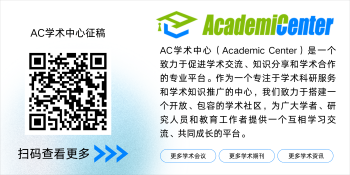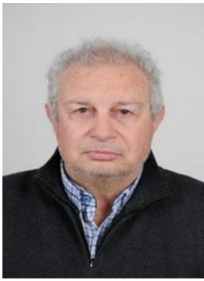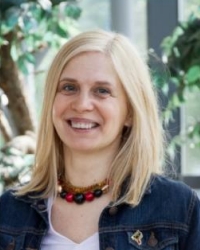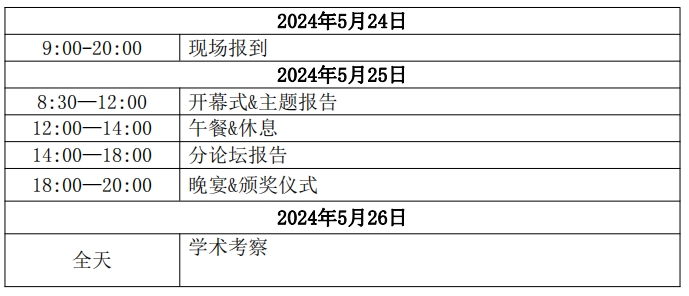教育政策与实践研讨会
邀 请 函
尊敬的专家学者:
ICEPP 组委会诚挚邀请您参与教育政策与实践研讨会。
本届会议(ICEPP 2024)将于2024年11月8日至10日在中国武汉举行。会议旨在就教育领域的问题、政策相关的问题、对社会的影响等领域搭建高端前沿交流平台,促进国内外专家学者的交流与合作,推动教育政策与实践的创新与发展。ICEPP会议愿意一直为推动教育研究做出贡献。被录用的论文将收录在会议论文集中。我们期待在中国武汉与您见面!
ICEPP 2024 组委会
一、会议信息
大会官网:http://www.icepp.net/
会议地点:中国 武汉
会议时间:2024 年 11月 8日-10日
学术平台:该会议已在AC学术中心发布征稿
AC学术中心AC学术中目前主要提供学术会议、学术期刊、学术资讯等综合学术服务,欢迎各位学者积极合作交流。

二、检索及征稿主题
征稿主题:
集中但不限于“教育领域的研究问题、政策相关问题”等其他相
关主题。
教育领域的研究问题:
知识管理、不同学习领域的意义形成过程、教学中的隐喻、模型
和模拟、科学与人文学科的融合、促进学习、支持概念变革 、儿童
发展学习研究、K-12 教育中的教学问题、高等教育中的教育研究、
成人和老年人学习...
政策相关问题:
连接教育研究与政策制定、开放教育的政策方针、课程开发、学
校教育技术政策、评估政策、教师教育和认证、教育目标和毕业要求、
多样性、多元文化和公平问题、教育基础设施和环境、组织和管理政
策、教育问责制、学术事务、可负担性问题、虚拟大学...
三、主讲嘉宾
Keynote Speaker

Assoc. Prof. Dr. Dimitrios A. Karras
National and Kapodistrian University of Athens (NKUA) Greece
Assoc. Prof. Dr. Dimitrios A. Karras received his Diploma and M.Sc. Degree in Electrical
and Electronic Engineering from the National Technical University of Athens (NTUA),
Greece in 1985 and the Ph.D in Electrical Engineering, NTUA, Greece in 1995, with honors.
During 1990-2004 he collaborated as visiting professor and researcher with several
universities and research institutes in Greece and Heidelberg, Germany (DKFZ). During
2004-2018 he has been with the Sterea Hellas Institute of Technology, Automation Dept.,
Greece as assoc. prof. in Digital Systems and Signal Processing, as well as visiting prof. at
Hellenic Open University, Dept. Informatics in Communication Systems (2002-2010). Since
1/2019 is Associate Prof. in Digital and Intelligent Systems & Signal Processing, in National
& Kapodistrian University of Athens, Greece, School of Science, Dept. General as well as
adjunct Assoc. Prof. Dr. with the School of Basic Sciences, BIHER University, Chennai,
India, as well as with the GLA university, Mathura, India and EPOKA & CIT universities,
Computer Engineering Dept., Tirana 。 He has published more than 90 research refereed
journal papers in intelligent and distributed/multiagent systems, pattern recognition,
image/signal processing and neural networks as well as in bioinformatics, more than 10 edited
books in international publishers and more than 190 research papers in International refereed
scientific Conferences. He has given more than 150 invited and keynote speeches at
international conferences.
He has served as program committee member as well as program/general chair at many
international conferences and workshops in signal, image, communications, and automation
systems. He is, also, former editor in chief (2008-2016) of the International Journal in Signal
and Imaging Systems Engineering (IJSISE). Moreover, he is currently.

Prof. Dr. Giedr Valūnait Ole?keviien
Mykolas Romeris University
Technology-supported language teaching and learning in the current research
is motivated by The European Commission guidelines on the use of digital
technologies to empower learners (European Commission 2020). Although
digital generations are undeniably engaged with technologies and they are
very comfortable and confident using technology to accomplish tasks, many
educators tend to assume that students today have digital literacy.
Nevertheless, university students lack the adequate digital literacy skills
needed for digital learning (Muresan and Gogu 2013). There is the need to
acquire digital literacy in digital learning and acquiring self-regulated learning
strategies (SRLS) is also a must in digital learning.The research focuses on the
following questions. What is the understanding of SRLS by students in online
classes of foreign languages? How SRLS are used by students in online classes
of foreign languages? Research methodology relied on a questionnaire, which
included closed-ended and open-ended questions to obtain quantitative and
qualitative data. The study revealed that that 49,4 % of the respondents do not
use SRLS. The respondents identified the reasons for not using SRLS: the lack
of knowledge about SRLS (32,2%); not being encouraged (11,5%);
non-acceptance (SRLS claimed useless) (5,7%). The respondents see SRLS
applicable for independent study at home (71,3%). Teachers encourage use of
SRLS mainly during the performance phase for self-monitoring and during
the reflection phase for self-evaluation. Planning phase does not get attention.
The results of the survey show that that high percentage of the respondents
are not aware of the SRLS. It might be due to the persisting expectation that
students should already be able to self-regulate their learning.
四、组织架构
General Chairs
Prof. Yunhua Zhong| Hunan Normal University
Program Chairs
Prof. Guang Sun | Hunan University of Finance and Economics
Technical Chairs
Prof. Qi Tan | Harbin Engineering University
Publicity Chairs
Assoc. Prof. Hui Wang | Hunan University of Science and Technology
Technical Program Committe
Prof. Limin Zhao | Hengyang Normal University
Prof. Rong Jiang | Hunan First Normal University
Prof. Qi Tan | Harbin Engineering University
Assoc. Prof. Roberto Morales-Arsenal | CUNEF Universidad, Spain
Assoc. Prof. Yaodong Chen | Changsha Normal University
Assoc. Prof. Ka Sun | Nanchang University of Aeronautics and Astronautics
Assoc. Prof. Jing Cheng | Nanhua University
Assoc. Prof. Guoping Huang | Chizhou College
Assoc. Prof. Liang Xiong | Hunan Agricultural University
Assoc. Prof. Sónia Isabel Vieira Moirtágua Pais
| Polytechnic Institute of
Leiria
Dr.Larry Wen | Griffith University, Australia
Dr.Khongdet Phasinam | Pibulsongkram Rajabhat University, Phitsanulok,
ThailandInternational Conference on Education Policy and Practice(ICEPP)
Senior Lecturer, Andrew Csizmadia | Birmingham Newman University, UK
五、Workshops 研讨组(征集中,欢迎加入)
1、Title: Introduction to Structural Equation Modeling Using SmartPLS 4
Chair: Ramayah Thurasamy,Universiti Sains Malaysia
六、参与形式
1.Presenter
口头报告:在大会上就报告人目前的研究等进行口头英文学术报告,
时长约10-15分钟。
论文报告:在大会征稿主题范围内提交相关领域英文论文,评审通
过后提交注册并收录到会议论文集。
研讨会:针对会议主题组建workshop,并邀请相同研究领域的专家、
学者加入,以分论坛形式展开研讨。
2.Peer-Reviewer
作为会议的审稿专家参与支持,负责在专业领域内对稿件进行同行
评审,组委会将颁发审稿专家证书。
3.Committee
作为会议联合主席或技术委员会参与支持,在会议技术层面上指导
把关,负责一部分同行评审环节,组委会将颁发荣誉证书。
七、投稿指南
1.论文模板:
https://elsp-homepage.oss-cn-hongkong.aliyuncs.com/pr
oceeding/journals/1538527338425958400/Template.docx
2.投稿链接:https://cms.elspub.com/manager/dashboard, 登
录后选择ICEPP
3.请根据以下几点准备您的论文:
(1)论文必须是全英文原创稿件,非纯综述类,整体需符合论文
要求,摘要、关键词和结论部分需体现会议主题,应具有学术或实用推
广价值,并且未在国内外学术期刊或会议发表过;
(2)重复率不得超过30%(含文献),否则由文章重复率引起的
被拒稿将由作者自行承担责任。
4.投稿后7-15个工作日内反馈审稿意见或录用通知;
5.请在收到录用通知后在7个工作日内完成注册。
八、会议注册
1.投稿作者注册
注册费:2300元/篇(普通作者);2100元/篇(学生作者);超过
6页,超页费300元/页。收到录用通知后请在7个工作日内完成注册并提
交论文终稿及其他注册资料,如有特殊情况需要延期注册,请及时告知
组委会。
2.口头报告/仅参会International Conference on Education Policy and Practice(ICEPP)
http://www.icepp.net/
参会费:1200元/人,请于2024年5月6日前完成注册及缴费。如需
口头报告请于2024年5月17日前将报告摘要及PPT发送至组委会官方邮
箱进行审核。
九、支持政策
1、优秀论文:大会将评选Best Paper。
2、******组织奖:大会将评选******Workshop组织奖。
3、学术支持:参与本届大会的Workshop Chair将享有被优先推举
作为下届学术委员会委员、主讲、主席等的权利。
九、会议日程安排
